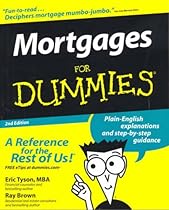by Broderick Perkins
© 2010 DeadlineNews.Com
Unauthorized use of this story is a copyright violation -- a federal crime

Deadline Newsroom - To speed up resales of foreclosed properties, the Feds are going to allow Federal Housing Administration (FHA) mortgage insurance on previously exempted homes.
Under most conditions, FHA currently prohibits insuring a mortgage on a home owned by the seller for less than 90 days. That's to avoid "flipping" properties quickly so they are resold at inflated prices to unsuspecting borrowers.
Effective Feb. 1, 2010, the prohibition will be waived, because FHA and it's overseer, the U.S. Department of Housing and Urban Development recognizes acquiring, rehabilitating and reselling fairly priced foreclosed homes can also take less than 90 days -- when well supervised.
Without FHA mortgage insurance for a resale within 90 days, sellers balk at FHA buyers because the sellers will have to endure carrying costs along with the risk of vandalism associated with allowing a property to sit vacant for long periods of time.
Low-down payment FHA loans account for 30 to 50 percent of new home purchases depending on the location.
The waiver is seen as a way to bolster FHA's reserves, which are well below levels recommended by Congress.
In related moves, to head off the financial impact of defaulting borrowers, the FHA is adding more-stringent lending requirements and higher fees borrowers must pay for the federally insured loans.
Troubled by the high rate of foreclosures, the Feds are also investigating 15 FHA lenders with high incidences of FHA mortgage insurance claims, triggered with a borrower defaults on his mortgage.
The market needs what it can get to speed up foreclosure transactions which are plagued by a host of conditions including, sellers' delays; unprepared borrowers; clean up issues; fix-up problems; and fraud.
The FHA's new 90-day waiver policy will be in place for one year, unless FHA Commissioner David H. Stevens withdraws or extends the policy.
"This change in policy is temporary and will have very strict conditions and guidelines to assure that predatory practices are not allowed," said HUD Secretary Shaun Donovan.
The new policy change will permit buyers to use FHA-insured financing to purchase HUD-owned properties, bank-owned properties, or properties resold through private sales.
To protect FHA borrowers against predatory flipping practices the waiver is limited to sales that meet the following general conditions:
• All transactions must be arms-length, with no identity of interest between the buyer and seller or other parties participating in the sales transaction.
• In cases in which the sales price of the property is 20 percent or more above the seller's acquisition cost, the waiver will only apply if the lender meets controlled conditions.
• The waiver is limited to forward mortgages, and does not apply to the Home Equity Conversion Mortgage (HECM) for purchase program.
"FHA borrowers, because of the restrictions we are now lifting, have often been shut out from buying affordable properties. This action will enable our borrowers, especially first-time buyers, to take advantage of this opportunity," said Stevens.
More details about the waiver are available on HUD's Web site.
• Click on the keywords below for more stories on this subject.
© 2010 DeadlineNews.Com
Advertise on DeadlineNews.Com | Shop DeadlineNews.Com
Get "News that really hits home!" for your Web site or blog from the DeadlineNewsGroup.Com.
You are reading a sample of "News that really hits home!", now available from several beats and published in a growing number of locations.
Broderick Perkins, an award-winning consumer journalist, parlayed 30 years of old-school journalism into a digital real estate news service, the San Jose, CA-based DeadlineNews Group, including DeadlineNews.Com, a real estate news and consulting service and Web site, and the Deadline Newsroom, DeadlineNews.Com's news back shop.
Perkins is also the first Examiner to cover three beats for the Examiner.com news service:
• National Offbeat News Examiner
• National Consumer News Examiner
• National Real Estate Examiner
DeadlineNews.Com's Editorial Content Is Intellectual Property • Unauthorized Use Is A Federal Crime
Read more!




